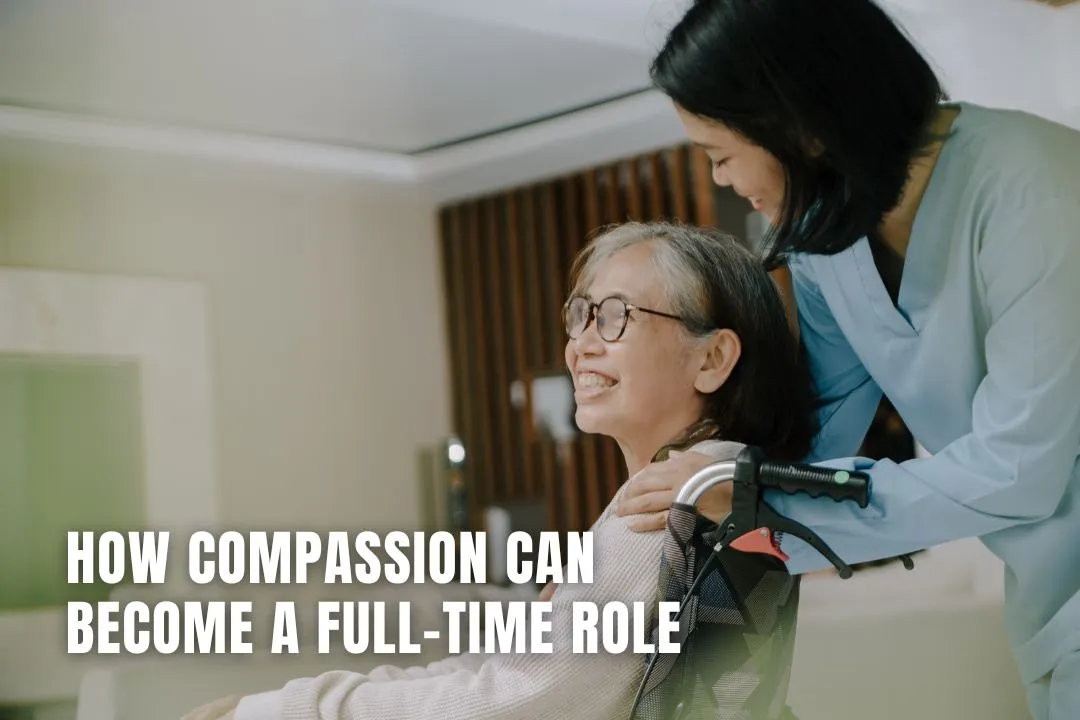
Editorial Disclaimer
This content is published for general information and editorial purposes only. It does not constitute financial, investment, or legal advice, nor should it be relied upon as such. Any mention of companies, platforms, or services does not imply endorsement or recommendation. We are not affiliated with, nor do we accept responsibility for, any third-party entities referenced. Financial markets and company circumstances can change rapidly. Readers should perform their own independent research and seek professional advice before making any financial or investment decisions.
Compassion is often viewed as a personality trait, one that exists in moments of kindness and empathy. But what if compassion wasn’t just a spontaneous act, but a career path? In a world that’s increasingly in need of care, emotional intelligence, and empathy, compassion has evolved beyond a value – it's now a skill set that many organisations are hiring for full-time.
Here’s an overview of how compassion can become a full-time role.
In professional settings, especially in health and social care, compassion isn’t just a “nice to have” – it’s essential. Individuals who are driven by the desire to help others bring more than just technical support to their roles. They bring comfort, understanding, and reassurance. Whether working with the elderly, individuals with disabilities, or people recovering from illness or injury, those who lead with compassion often make the biggest difference.
This emotional connection improves not only the quality of care, but also builds trust and promotes better outcomes for clients and patients. In fact, many care providers have begun to recognise and invest in training programmes that help team members enhance their empathetic approach.
There’s a wide range of roles where compassion is more than just a soft skill – it’s the foundation of the job. These include:
Each of these positions requires more than just completing tasks – they demand presence, emotional availability, and a sincere desire to improve someone’s day-to-day life.
For those who naturally care for others, turning compassion into a profession can be both fulfilling and sustainable. One of the benefits of working in care-related roles is the opportunity to build long-term relationships with those you support. It becomes more than a job – it becomes a meaningful contribution to someone else’s life story.
Employers are now actively seeking individuals who bring heart to their roles. Agencies and organisations across the UK offer structured opportunities with training, support, and clear career progression pathways. If you're considering a transition into a career built on compassion, it's easier now than ever to find opportunities tailored to your strengths.
A great example of this is Alina Homecare jobs, which offers a range of roles where compassion, reliability, and dedication are key attributes. Whether you're new to care or looking to develop further in the sector, this is a space where your natural empathy can become your greatest asset.
Demographic shifts, including an aging population and increased awareness of mental health, mean the need for compassionate care is growing. Governments and care providers alike are investing more in community support and home-based care, opening doors for thousands of new roles each year.
At the same time, more people are rethinking what they want from work. For many, the desire to make a real difference is stronger than the pursuit of traditional corporate success. Jobs rooted in compassion offer a sense of purpose that’s hard to find elsewhere.
Making compassion your full-time role doesn’t mean losing professionalism – it means integrating your values into your daily work. From flexible schedules to emotionally rewarding responsibilities, a career centred on care can bring both stability and satisfaction.
Compassion is no longer confined to random acts of kindness. It’s a professional strength, a job requirement, and for many, a calling. If you’ve ever felt driven to make someone else’s day a little easier or their life a little brighter, there’s a place in the workforce for you – and it’s one that matters deeply.